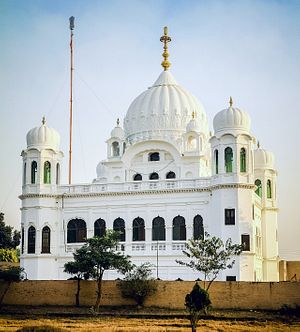On March 14, Pakistan and India’s delegations met on the Indian side of the Attari-Wagah border to finalize the modalities for the Kartarpur corridor’s opening. The development comes a few weeks after the two countries were on the verge of an all-out war. Does the meeting reflect another rebuilding phase between New Delhi and Islamabad or did the meeting take place because it fits into both countries respective political and diplomatic initiatives?
What remains clear is that at this point is that the government in India doesn’t have a desire to follow any initiatives that may indicate a tone of reconciliation with Pakistan. For the government of Prime Minister Narendra Modi, initiating any dialogue with Pakistan only weeks after talking about punishing the country may not be a wise approach to follow, particularly when the national general election is only few weeks away.
Moreover, talking to Pakistan a month before the scheduled general election in the country can also weaken Modi’s domestic support base. At this point, Modi is not interested in initiating dialogue at any level, such as the recent meeting, to rebuild trust between the two countries that might eventually translate into a major initiative. Arguably, any government in India after an attack of the magnitude of the Pulwama attack — and that too a few months before the national election — would prefer to cut off all diplomatic ties with Pakistan.
Modi’s only interest in agreeing to any such meeting is also driven by domestic political needs. For the Sikh population in India, the Kartarpur corridor initiative has an important ideological and political significance. Modi doesn’t want to offer political parties in the opposition any space when it comes to the Kartarpur issue. By meeting Pakistan’s delegation at the Attari-Wagah border, Modi’s political party, the Bharatiya Janata Party (BJP), is sending a message, indicating that the party is interested in following through the initiative. Beyond this, the meeting with Pakistan doesn’t have any significant value when it comes to Pakistan and India’s bilateral relationship.
For Pakistan, the meeting with an Indian delegation concerning the full implementation of the Kartarpur corridor initiative had an altogether different meaning. Currently, Islamabad’s diplomacy vis-à-vis New Delhi remains focused on exhibiting an intent that the former is interested in peace and wants to resolve all issues through dialogue. Reportedly, the meeting at the Attari-Wagah border was pushed by Pakistan, for it adds to Islamabad’s calls for a wider peace advocacy concerning all outstanding issues between the two countries.
However, Pakistan understands that any meeting before the national general election in India may not lead to any comprehensive results on the ground when the election cycle is over. It’s also possible that the initiative may stall altogether because of changed political priorities by the newly elected government in India. Thus, for Pakistan, pushing for a meeting before the general election suits the country’s diplomatic objectives and adds pressure on Modi’s government to respond to Islamabad’s calls. Rejecting Islamabad’s calls on an issue that has deep political significance in Indian politics can cost the BJP on election day.
It has further been speculated that Pakistan wanted to take a major delegation to India to make the exchange a high profile meetup. It was Islamabad’s intention to hold the dialogue on the issue in New Delhi or any other major city in India. The Indian government, however, rejected the proposal and insisted on a meeting at the border to keep it as low key as possible.
The intentions on both sides when it comes to the actual meaning of the recently held meeting are rooted in making political and diplomatic gains rather than making gestures toward starting a significant peace initiative. The general elections in India are yet to take place and another militant attack in the Kashmir region or anywhere else has the potential to undermine even initiatives of such as low diplomatic value.
































